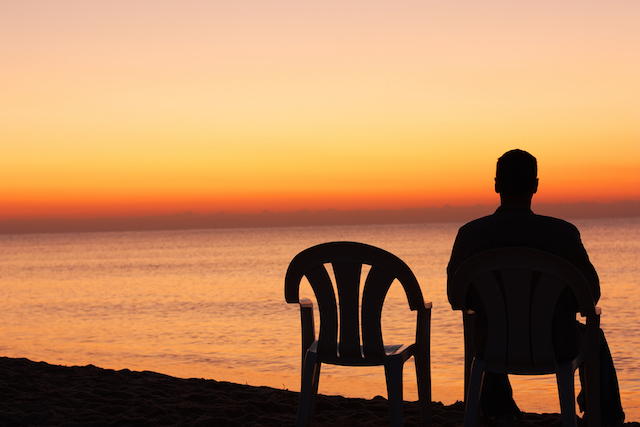
On the bus a couple of days ago I overheard a man talking with a friend about death and bereavement,
“I don’t get why people mourn . . . we all die, everyone dies, so what’s the point of mourning? It doesn’t do them any good and it sure as hell doesn’t affect whoever’s died. It’s stupid . . . everyone dies. We shouldn’t mourn . . . we should just get on with life”
As I listened to him speaking I wondered what his experience was. My deepest feeling that was either he had never lost to death someone he deeply loved, or his nonchalance was his style of denial because he was all too well acquainted with grief and hated it. Either way, the simple fact he spoke at length about mourning and why we shouldn’t do it strongly implied he actually had extreme feelings about it; quite the opposite of the impression he was presenting.
Thinking a great deal about this, two themes keep reoccurring for me. Firstly, the beauty and necessity of grief, how human it is to mourn, that it is perhaps the time we are at our most vulnerable and honest, and how without bereavement there can be no real healing from the pain and heartbreak of losing someone loved and needed. Secondly, I wonder if so many of us fail to live content and fulfilled lives because we don’t actually have a healthy appreciation of death and dying. By that I mean that we ‘know’ everyone dies, but we tend to sleepwalk through life without fully experiencing the world and living well until it’s too late. I frequently find that people who know they are terminally ill suddenly develop a zealous taste for life and a need to do things ‘now’ that they have put off for years - just think of Edward Cole and Carter chambers, beautifully portrayed by Jack Nicholson and Morgan Freeman, in The Bucket List (if you haven’t seen it, I thoroughly recommend it).
Grieving is a natural human response to the loss of parents, siblings, children, partners/spouses, friends, and yes beloved pets too, who mean the world to us and who have been precious cogs in the daily workings of our lives. Little wonder, then, that if they die, life falls apart because that special cog is suddenly gone. Bereavement has no time scale and there is no right or wrong way to deal with it, but of one thing I am absolutely certain - it changes life forever; we do not ‘get over it’, we do not have to ‘stay strong’, there is no ‘light at the end of the tunnel’, and time absolutely does not heal. What happens in reality is that we slowly learn to work with our bereavement, and we gradually learn to incorporate grief into our lives so that eventually we can laugh for happy memories as well as cry for our loss, and understand how to live without the physical presence of ‘our world’ even though they may only be a whisper away. For some people that can take years; it is not a fast process.
Whether Christians, people of other faiths, or people of non-faith, the one thing we generally have in common is that those in bereavement are uncomfortable to be around. Why? Because the person known suddenly becomes someone else who is outside our comfort zone and we don’t know how to be around them - I think that’s why stupid platitudes come pouring out as a defence, like, “You’ll get through this,” because we just haven’t a clue what to say, but we know we need to say something. What we are really saying is, “I can’t handle you like this, please get better soon and be the person I know and love.”
At the end of the day, when we really don’t know how to be with those grieving, and really don’t know what to say, if we truly genuinely love them, then the simplest and best thing is to say exactly that - “I can’t imagine how you’re feeling just now, but I love you and you’re in my thoughts and prayers.” It beats struggling to find a suitable platitude that may result in hurt, tears, or even a slap in the face! I remember when someone I loved (and still love) dearly died from pancreatic cancer . . . whenever someone said something shallow to me I had to grit my teeth and smile, when actually I felt like screaming at them and throwing them across the room!
As for living with a healthier attitude towards our own deaths, it might just spur us on to make sure we enjoy life more, travel to places we always wanted to go to but keep putting off, reconciling great friendships that have soured for some reason, strive for that job we always wanted to do rather than stick with a job we have no satisfaction in . . . you get the picture. Perhaps most importantly, make the most of spending time with those we love and let them know what they mean to us.
Buddhists have a practise that involves imagining there is a little bird on one’s shoulder that asks every day, “Is today the day I die? Am I ready? Am I doing all I need to do? Am I being the person I want to be?” I like that: it is a reminder to live each day fully, to stop sleepwalking and wake up to the world. Despite its many troubles, we still live in a beautiful world with incredible places to see, a vast range of stunning animals and plants, and amazing people to get to know . . . what are we waiting for?
 Join us on
Join us on 